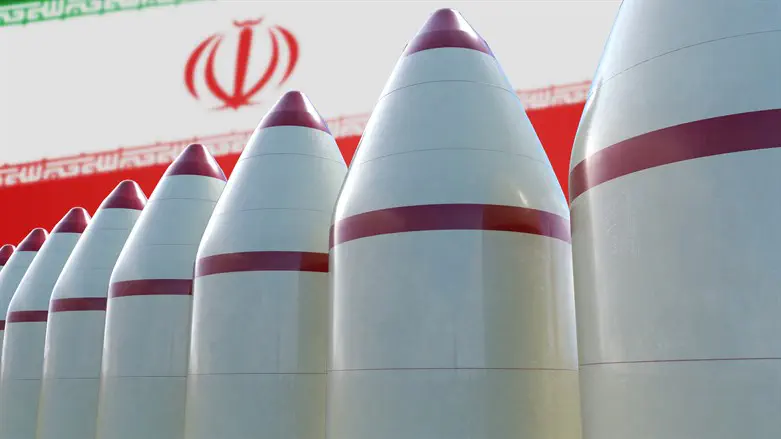
Secret documents recently uncovered reveal that Iran is planning to import significant quantities of phosphate from Syria to use in the production of uranium for its nuclear program.
The documents contain evidence that the the Atomic Energy Organization of Iran (AEOI) has asked for permission from the government to import 800,000 tons of phosphates from Syrian mines under the Iranian regime’s control without the government paying the costs, according to an Iran International report.
In 2017, Iran and Syria signed an understanding to partner in the production of phosphate from a mine in Syria. Phosphate is mainly used in manufacturing fertilizer. However, it can also be obtained for use in extracting uranium.
The uncovered letter asked the nuclear agency to determine whether they can accomplish “the annual purchase of phosphates from Syria without paying the government’s share.”
A second letter in the cache of documents obtained by Iran International quotes the head of Iran’s atomic agency, Mohammad Eslami, asking Iranian Vice President Mohammad Mokhber to green light the importation of phosphates from Syria.
“In order to supply part of the uranium needed for the country's nuclear industry, this organization (AEOI) is mulling a project to extract uranium from Syria’s phosphate mines, the exploitation of which is at the disposal of the Islamic Republic,” Eslami said in the document.
“Due to the high grade of uranium in the phosphate soil of these mines, the extraction of the element and the preparation of yellowcake from it is technically more feasible than the extraction of uranium from low-grade radioactive mines of Iran,” he added.
Yellowcake is used for preparing uranium for nuclear energy or weapons purposes. It is produced with uranium ore and then subsequently separating the uranium from rocks using an acid solution.
Eslami concluded int he document that the cabinet should begin the imports without providing funds to the government.
An appendix included with the letter also noted that Iran is unable to access conventional sources for extracting uranium due to international sanctions. Therefore, it is increasingly turning to alternate sources, such as phosphates.
The Khunayfis mine in Homs, Syria is thought to hold 300 million tons of phosphates, according to the document.
